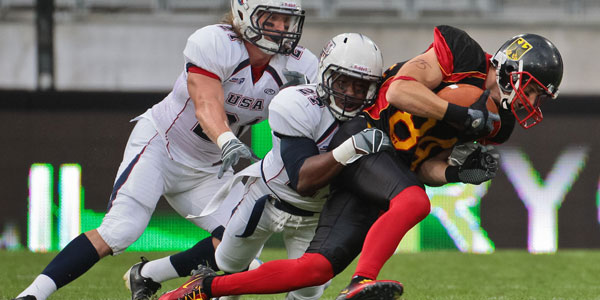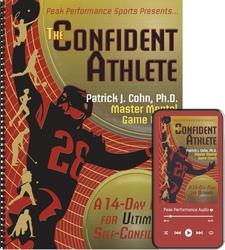
Finding Confidence After Failure
How do you feel after blowing a lead and losing a game? Do you question your abilities? Do you feel less confident about the next competition?
What you tell yourself after a performance will impact your emotions and confidence. In addition, your thoughts about a recent performance will affect your preparation and performance for the following competition.
Perspective is your view of a performance. In other words, perspective is how you evaluate how well you played in a competition. So, your perspective is always true for you.
Perspective may not be based on facts, but it is YOUR point of view or YOUR reality. Unfortunately, outperforming your reality is practically impossible.
For example, if you were a hockey goalie and gave up two goals in the last minutes of play to lose a game, you may see yourself as a below-average goalie.
If you view yourself as a bad goalie, you will likely live up to that negative assessment. You will lack confidence for the next game. You will be anxious when the puck is in the defensive zone.
Instead of tracking the puck, you will be distracted by thoughts of the other team scoring. You will be tight, and your reaction time will be slow. You will stay back in the goal and not challenge shooters.
Bouncing Back From Mistakes
These times are when you allow the opposing team to score easy goals. In essence, according to your last game, you proved yourself correct when you thought you were a bad goalie.
Imagine how different you would prepare and play for the next game if you evaluated your performance more positively. Now, you cannot change the results of a game that has already been played, but you can look at your performance objectively.
You may have given up some late-game goals, but does that mean you made no positive plays the entire game?
Looking for your successes in a game, no matter how small, helps keep your confidence high. You will prepare better for the next game when you have high confidence.
You may think looking for something positive is essentially lying to yourself but seeing everything as unfavorable is the biggest lie.
After a disastrous fourth quarter, the Golden State Warriors lost to the Boston Celtics 120-108 in Game 1 of the NBA Finals. Golden State entered the fourth quarter with a 12-point lead, but the Celtics stormed back to outscore the Warriors 40-16.
After the game, Warriors forward Draymond Green viewd Golden State’s performance in a positive perspective.
GREEN: “They stayed within striking distance, and they made shots late. We’ll be fine. We’ll figure out the ways we can stop them from getting those threes and take them away. But I don’t think it was a rhythm thing. We pretty much dominated the game for the first 41, 42 minutes, so we’ll be fine.”
The result of this perspective was a dominant performance in Game two, where the Warriors won 107-88.
Perspective is seeing your whole performance, not dwelling only on bad plays.
Assessing Performance for More Confidence:
View your performance objectively. After competition, think about two things you did well first. It might help you cool down for 30 minutes first.
Then, think about two areas of your game you want to improve in the next week of training. Take a growth perspective to your game.
A positive post-competition evaluation can impact your motivation in future practices, training sessions, and competitions.
Related Sports Psychology Articles
- How to Grow Competition Confidence
- How to Evaluate Losses for More Confidence
- How Preparation Boosts Confidence
*Subscribe to The Sports Psychology Podcast on iTunes
*Subscribe to The Sports Psychology Podcast on Spotify
Download a free sports psychology report to improve your mental game!
Learn more about our one-on-one mental game coaching.
The Confident Athlete

“The Confident Athlete” consists of 2 audio programs that include 14 days of confidence fueling exercises and a simple to follow workbook that guides you through the 14 days, helps you apply the strategies, and customizes the exercises to your personal needs.
Let me help you put a stop to the confidence leak. You can learn to have greater levels of confidence in competition than you do in practice by identifying the specific ways you undermine your own confidence and how to convert your practice confidence into COMPETITIVE CONFIDENCE.
“The Confident Athlete” is a ground-breaking system to teach you how to think like a champion and have ultimate self-confidence every time you step on the playing field, court, track, or course. The confident athletes was developed for any athlete – junior to professional –that wants to gain confidence. However, coaches and sports parents can learn how to teach others to perform with ultimate confidence. Use my program if you want to bust a slump or just wanting higher or more consistent levels of self-confidence.
